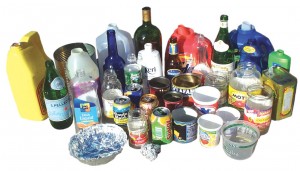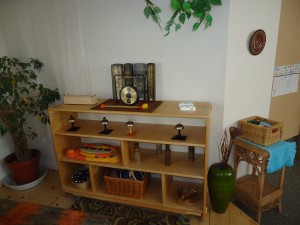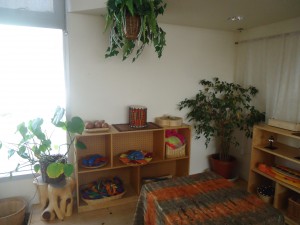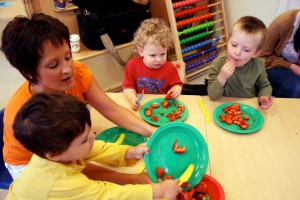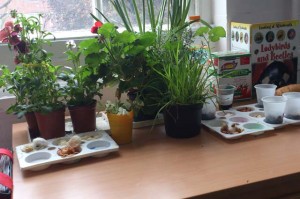Splish, splash, bubble, bubble, pop! All They’re Doing Is Splashing, Right?

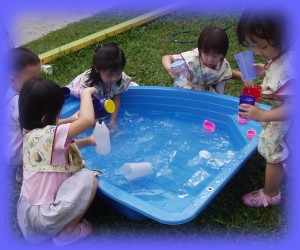
Incorrect! Water play fosters learning in all developmental areas. It provides opportunities for children to experiment with math and science concepts, strengthen their physical skills, advance their social and emotional skills, and enhance language development
Problem-Solving Skills. As children manipulate water play materials, they begin to understand why and how things happen. For example, given sinking and floating objects, a child will soon discover that just because something is large in size does not mean it will sink.
Math. Children begin to understand and experiment with concepts such as more/less, same/different, many/few, empty/full, before/after, greater than/less than, and counting
Science.Water gives children an avenue to contemplate issues such as: What makes rain? Where does water come from? What makes mud? children also learn physics principles such as the effects of force (increasing the water flow through increased force); effects of gravity (water runs downhill); and change in state (solid, liquid, gas).
Physical Development. Water play encourages the development of eye/hand coordination through pouring, squeezing, stirring, painting, scrubbing, and squirting. Children strengthen their gross motor skills by running, dodging water drops, and hopping through a sprinkler. They widen their sensory experiences as they put their hands in different textures (gritty, squishy, and slimy) and different temperatures (warm, cool, and cold).
Social and Emotional Development. Water play is one of the most relaxing activities children can experience. After all, many adults relax in a warm bubble bath or hot shower! Water play relieves tension by encouraging children to release their emotions with pouring, pounding, and swooshing. In addition, social skills expand as children play cooperatively; negotiate; and share equipment, space, and materials.
Language Development. Children learn new vocabulary such as sieve, funnel, eggbeater, stream, bubbly, moisture, and evaporation. Water play is such a meaningful experience for young children that it can be extended to writing experiences as well. Children may draw pictures of sprinkler play, then dictate a description or story to the teacher. Another valuable writing experience involves the teacher writing down children’s predictions, such as how long it will take ice cubes to melt in the sand box or how many babies one batch of soapy water will wash.
Creative Development. Water encourages children to use their imagination. As the children play, they may pretend that they work at a car wash or live in a castle. Water also encourages children to try out new ideas and solutions to problems in a safe environment.
Recommended Resources
Crosser, S. (1994). Making the most of water play.Young Children (July): 28-32.
Hendrick, J (1996).The whole child: Developmental education for the early years.Columbus, OH: Prentice-Hall, Inc.
James, J.C. and Granovetter, R.F. (1987).Waterworks: A new book of water play activities for children ages 1 to 6.Lewisville, NC: Kaplan.
MacDonald, S (1998).Everyday discoveries: Amazingly easy science and math.Beltsville, MD: Gryphon House.
Miller, K. (1989).The outside play and learning book.Beltsville, MD: Gryphon House.
Schiller, P. (1997). Brain development research: Support and challenges. Child Care Information Exchange (September): 6-10.



